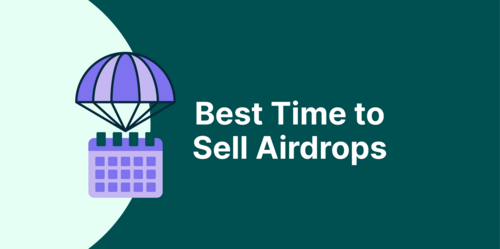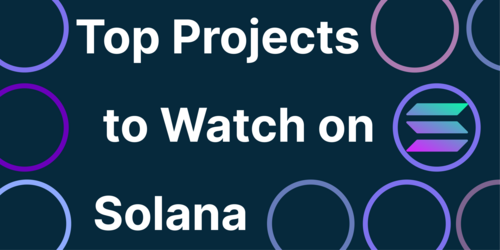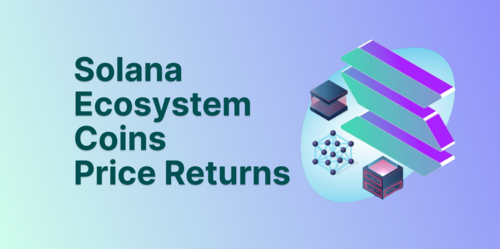Orca
A leading crypto marketplace on Solana. In the past 6 months Orca has driven more volume than any other protocol, totalling >$15 billion. Orca aims to bring a human-centered touch to crypto and technology.
Ori
Ori is an engineer and designer, and got pulled into the crypto rabbithole by Orca co-founder Yutaro. She was living in Tokyo at the time, working as a designer and was never expecting to get into crypto. Ori loves making anything that drives value to the world, particularly in new and unproven ways. During the pandemic, she moved in across the hall from Orca cofounder, one thing led to another, so free time during pandemic lockdowns were spent hacking on some side projects. She started working on Ethereum, then got a grant from the Solana foundation to build Orca.
Ep.74 Podcast Summary / Notes
-
What is Orca? Why Solana, and how was making the transition from building on Ethereum to Solana considering the different programming languages?
-
Orca is an all in one trading platform, a concentrated liquidity AMM.
-
Orca has an open source custom concentrated liquidity smart contract called Whirlpool that people can use to directly create a trading pair between any two fungible tokens on Solana.
-
Solana caught the eye of cofounder and Ori when SBF (and others) built Serum on Solana, and saw this as a testament to Solana’s unparalleled L1 performance, which at the time reaching that level of throughput without sharding was shocking
-
Founders thought that Solana really had potential to power apps at a scale never seen before while still caring about principles of decentralization, security, etc.
-
Ori thinks people put too much emphasis on programming languages.The more important thing is the skill of thinking like a programmer - learning a new computing language is not as daunting as learning e.g. from Spanish and then learning Japanese.
-
What was more difficult for Ori was learning to think like a smart contract programmer. When it’s just front end development, the mindset is all about shipping quickly and it doesn’t matter if it breaks - which is definitely not the case for smart contract programming.
-
On the Orca Climate Fund
-
Orca Climate Fund is part of the larger Orca protocol that specifically focuses on fighting climate change, and something that came out of Yutaro and Ori’s intention for Orca to have a positive impact on the world.
-
Two ways they intend to have positive impact - one is around economic opportunities, but second is what Ori sees as the biggest threat to humanity today, which is climate change.
-
As a founder of a protocol, the most you can do is to try to imbue those values into the DAO, which is what’s happening now with the Climate Fund.
-
In September, two things were announced:
-
1) Formalization of the donation that was voted on by the community last year. A portion of all the trading fees that went to the treasury totalling $550k went to the Ocean Conservancy to fund a grant programme which supports people working on local climate change initiatives, and
-
2) A medium blog piece Ori contributed to, which is an accounting of Orca’s climate impact. There was a long process of trying to understand what Orca could do to take responsibility for its environmental impact
-
-
How do you measure Orca’s climate impact? How to deal with the general negative impression of crypto by the general public?
-
Exactly why they did the due diligence and wrote the report to unpack the issue a bit, so that other founders and DAOs understand more without going deep down the rabbithole like they did.
-
Energy per transaction metric would be convenient, but measuring impact is not as simple as that since transactions and energy usage are not linearly related.
-
For transactions, it makes more sense to think of those as a ‘responsibility’ of the blockchain itself, and Solana already does offset its emissions, like it did in 2021.
-
What Orca can be directly responsible for is offsetting the emissions of their RPC nodes, which are the servers building these transactions onto the network. Orca also offsets the emissions of main contributors who traveled to the Solana Breakpoint Conference, which alone would total more than what Solana emits in a year.
-
Orca seems to be setting its own standard on how DAOs can operate
-
Ben: We always like to talk about how DAOs are the new frontier, but there are actually a lot of traditional practices that they could learn from.
-
Ori thinks that the bigger overall impact is just building a financial system that is overall more climate friendly than TradFi.
-
Right now it’s important to just get people to start thinking about this issue; shoutout to contributors from Celo who helped with the report and are the ones who pushed them to think more about what Orca could directly do, instead of just making splashy donations and feeling absolved of guilt.
-
Important for other protocols to start thinking of these issues too, as this is how action can scale.
-
As an example, recently Mango was hacked for about $100m, the DAO was later manipulated in an attempt to absolve the hacker of any liability. What are your thoughts on the overall state of governance?
-
Ori extends deep sympathy for everyone involved. Mango is one of the top teams in Solana and Ori has a tonne of respect for them and hope everyone gets back on their feet quickly.
-
DAOs are really an unsolved problem, something Ori has spent lots of time thinking about e.g. even something as basic as resolving the reasons why people are excited about DAOs.
-
Ori thinks that a lot of ppl are very ideological about what they wanna see DAOs accomplish:
-
A lot of angst and disagreements about how DAOs can be more inclusive, open, and upend traditional structures depending on an individual’s cultural background.
-
Ori personally doesn’t think that by default decentralized = better, as having come from traditional companies she has seen both good and bad.
-
Better = creating better alternatives to the existing financial system in ways that it does fall short e.g. ease of access. Hence this is why Orca’s mission is to open up access to those who might otherwise not have it, especially depending on one’s country of origin.
-
When it comes to DAOs that are trying to fund development in a competitive ecosystem, effectiveness still has to be a huge priority.
-
When it comes to effective vs. ideological concerns, there’s a tough balance to strike there, and we’ve definitely seen a lot of stumbles in regards to that.
-
One thing that we’ve learnt from e.g. the Mango incident, is that when the scope of a protocol is large it poses a challenge in terms of ensuring that all of the risks are mitigated, e.g. a wider scope of lending, borrowing, margin trading, perps, means that there’s a lot of risk and lots of potential for exploits to occur in terms of either from the DAO, or from smart contracts.
-
-
What are your thoughts on how DAOs can improve?
-
DAOs are similar to traditional structures because that’s what people are used to, so that’s what people try to replicate.
-
E.g. orderbooks are what people are used to, so they try to replicate it even if it might make less sense on-chain.
-
What makes blockchains unique is the visibility and transparency - what that can lead to is a fairer system, as it forces everyone to be more accountable as to how funds are moved on-chain.
-
Accountability through visibility is one of the principles Ori has suggested on how DAOs can improve, as well as putting safety first e.g. quality of code and designing a DAO structure that ensures safety of funds.
-
With regards to the flaws of the tokenholder-centric model of governance, Ori thinks that one of the reasons why there’s been little experimentation to it e.g. restricted or weighted votes, etc. is that most issues come from the easy gamability of on-chain systems. So, these well-intentioned implementations might actually be disadvantageous as it piles on complexity.
-
Any number of people can create any number of addresses, so unless you enforce KYC, which is essentially not even an option, there’s little flexibility to experiment with additional constraints like the ones suggested above.
-
That’s why radical simplicity at least has the advantage of being simple and having well understood attack vectors.
-
As DAOs are still nascent, simplicity may have fewer faults than complexity.
-
What are Orca’s plans in the near future, especially during the bear market?
-
Orca’s goal doesn’t change whether in a bull or bear market, which is to provide better infrastructure for a better financial system that others can iterate on in ways that they can’t even think of.
-
Orca is focussing on preparing for all the things that can be built on Orca, being the DeFi lego that people can use to build things of value.
-
One thing people are focussed on is GameFi, and Orca is already powering games like Genopets that are using it to bootstrap liquidity.
-
Entertainment is always something that humans need and is of value in itself, but of course entertainment is just the tip of the iceberg. What Orcais trying to do is build these human-centered primitives, so that if anyone want to launch their own token (which is the basis of anything built on crypto) they can do so more easily, reliably, and efficiently, and use a protocol that is focussed on doing good.
-
Working on core tech improvements, their SDK, and making things more usable in terms of smart contracts and for other developers.
-
Are there any thoughts that you wanted to share?
-
On why Orca is the leading marketplace on Solana:
-
This touches on the debate between orderbook and concentrated liquidity AMMs.
-
Ori thinks there is a huge misconception, and that this debate should also be reframed, because a concentrated liquidity AMM is just another implementation of an orderbook at its core, and can do everything that an orderbook can do if extended.
-
And long term that's what they wanna foster, that is for people to build all these things e.g. orderbooks on top of Whirlpool which is Orca’s concentrated liquidity AMM contract, but with the added benefit of being much more efficient because it’s designed for the blockchain and the Solana VM in particular.
-
Last Ori checked, Orca takes 25 times fewer transactions per dollar traded than an orderbook, so this means if Solana is more congested in future, it becomes more profitable and capital efficient to use Orca for powering trading volume.
-
From a conceptual POV, both are not that different in terms of what they can do, but Orca is more computationally efficient which is good for the blockchain and marketmakers/traders
-

Wendy is a research intern at CoinGecko. Follow the author on Twitter @alfalfawm





 Or check it out in the app stores
Or check it out in the app stores
